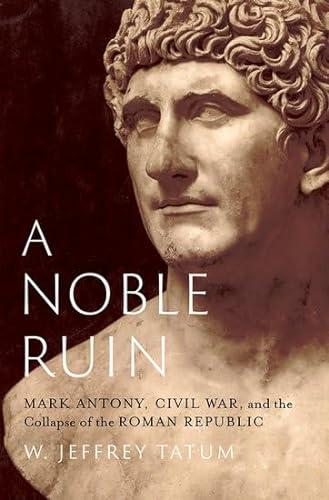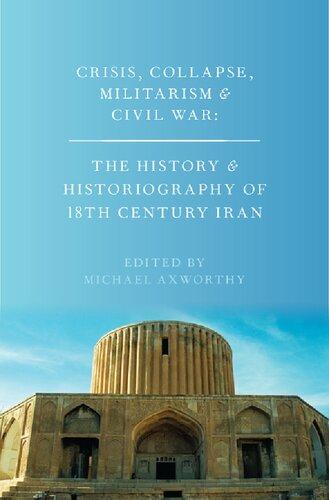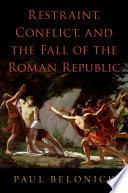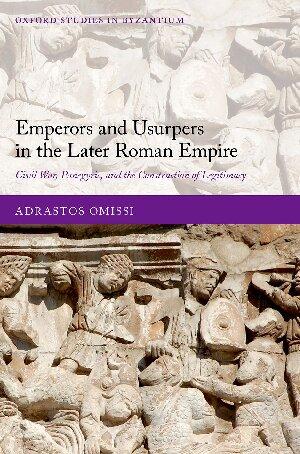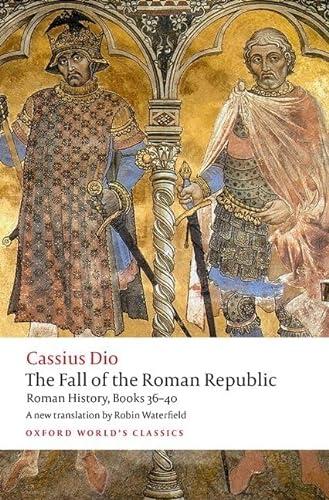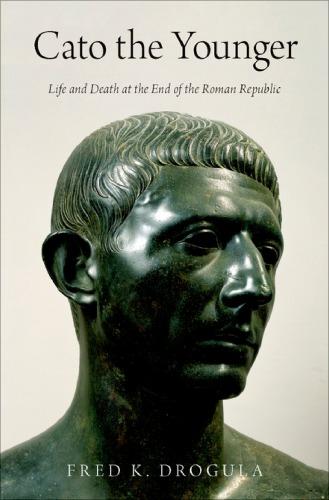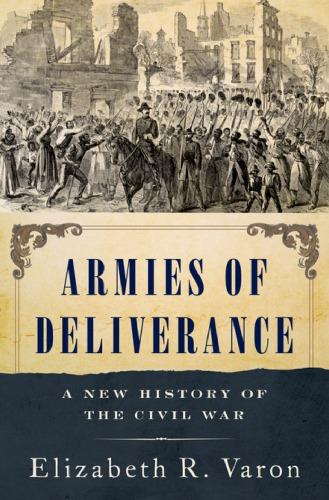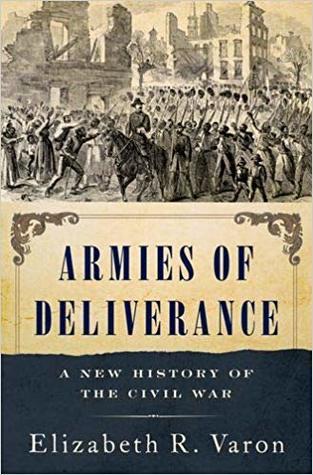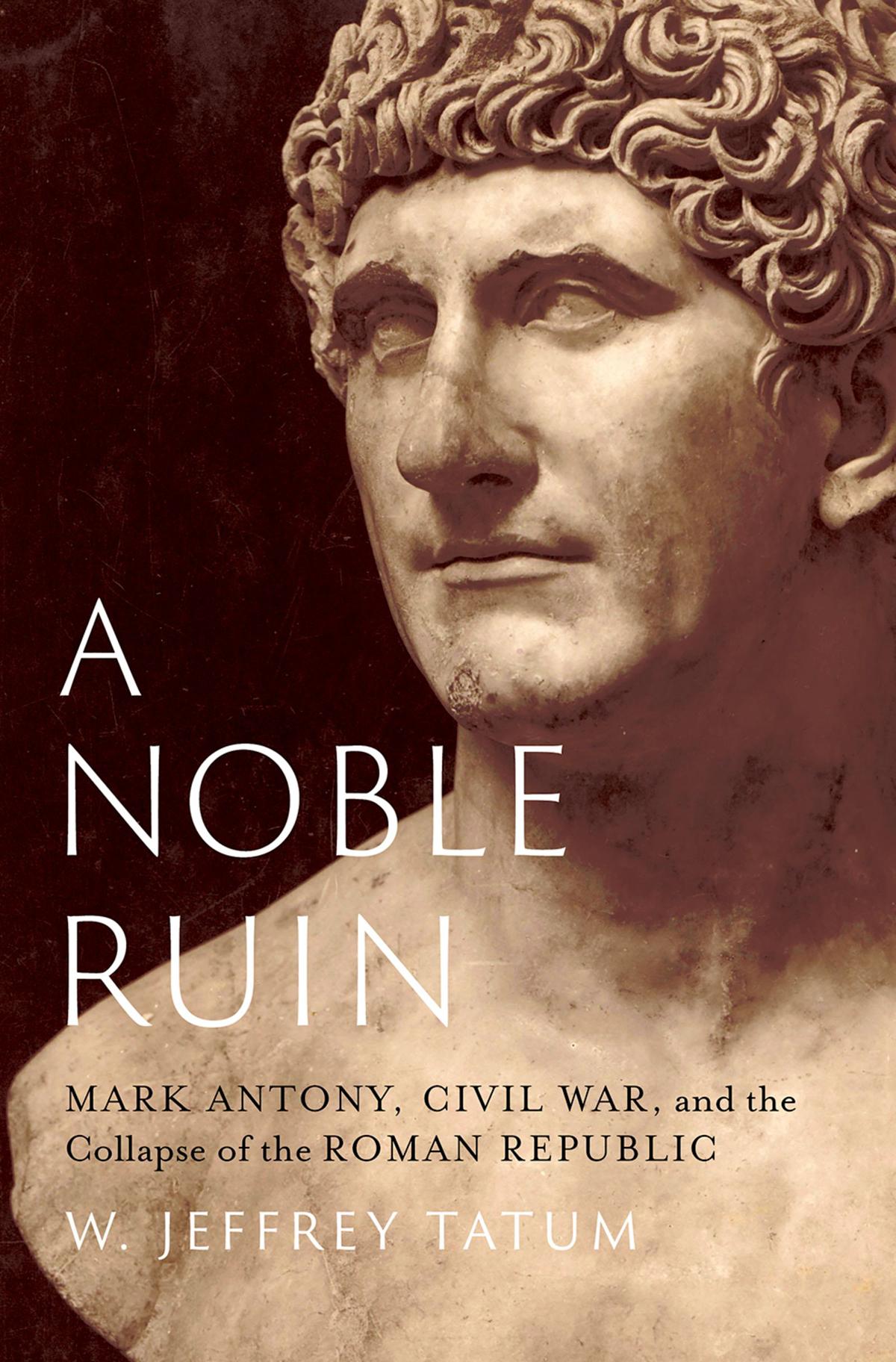forChrisPelling
Contents
Acknowledgements
Preface
I.
II. III.
IV.
V.
VI.
VII.
VIII.
IX.
X.
XI.
XII.
XIII.
XIV.
Notes
Beginning
Fighting for empire
Quaestor, tribune, and guardian of Italy
Caesar’s master of the horse
The Ides of March
A consul and an Antony
Civil fury and civil war
The domination of the triumvirs
Athens to Alexandria
My brother’s keeper
Enforce no further the griefs between ye
Fierce wars and faithful loves
Dissolution
Ending
Abbreviations
Bibliography
Index
Acknowledgements
It was Stefan Vranka who first suggested to me that I should write a biography of Mark Antony. In the long interval since then, he has remained a model of patience. And in his role as editor—after I finally disgorged a manuscript—he has been nothing less than invaluable. Others, too, have helped me with this book. I am grateful to audiences in the Americas, Australasia, and Europe who allowed me to try out some of my ideas, and I owe special thanks to my hosts on these occasions: Patricia Baker, Catalina Balmaceda, Henriette van der Blom, James Chlup, Robert Cowan, Monica Cyrino, Mary Ann Eaverly, John Marincola, Daniel Osland, Francisco Pina Polo, Daniel Pullen, James Rives, Cristina Rosillo-López, Lea Stirling, Frances Titchener, and Kathryn Welch. I also benefited from the Working Group in Roman History organized amid the COVID crisis by Celia Schultz; its members—Jane Chaplin, Evan Jewell, Rose Maclean, Gwynaeth McIntyre, Carlos Noreña, Josiah Osgood, Andrew Riggsby, Amy Russell, and Kathryn Welch—very kindly and helpfully discussed a draft of my chapter on the Perusine War. Robert Morstein-Marx allowed me to read, in advance of its publication, his fascinating book Julius Caesar and the Roman People, which teems with ideas. Tim Smith graciously answered multiple questions about aediles and the aedileship. David Levenson, Frederik Vervaet, and Hendrikus van Wijlick shared with me evidence I might easily have overlooked. My colleagues at Victoria University of Wellington, always encouraging, allowed me to teach (more than once) an undergraduate course on Antony and Cleopatra: the students in these classes, by way of reactions and discussions, did much to aid me in shaping this account of Antony’s life. My research also received practical support from the Joint Research Committee and the Joint Leave Committee of the Faculty of Humanities and
Social Sciences at Victoria University. And I was fortunate enough both to begin this book and, later, complete it in the congenial setting of the Institute for Classical Studies at the University of London.
My greatest debts are owed to Diana Burton, Jon Hall, Chris Pelling, and Robin Seager: they each of them read the whole of a draft of this book, were generous with their erudition, offered numerous valuable suggestions, and saved me from multiple blunders. I cannot thank them enough. As for local support, my New Zealand in-laws, nephews, and niece kept things lively. Likewise Jo and Jason and all the denizens of 14 Ingestre Street. Most of all, I am grateful to Diana Burton: her learning and generosity improved this book considerably; more importantly, she made life outside it and beyond it so much fun.
Few scholars have done more to advance our understanding of the sources for Antony and therefore our grasp of the man and his times than Chris Pelling. And from the beginning he has sustained a lively interest in the development of this biography. That is partly why this book is dedicated to him. Mostly, however, it is because he is my friend.
Preface
In his lifetime, Mark Antony was a famous man—and he played a leading role in the transformation of the Roman world. The fall of the Roman republic and the imposition of the Augustan age articulate a truly crucial epoch in European and Mediterranean history and culture. Antony was a central figure in this transformation. Consequently, he remains famous, or infamous, and an object of recurring academic study. His life—variegated, passionate, sensual, bold, tragic (in a sense)—inspires vigorous reactions. Nearly everyone has a view on Antony, and the habit began early. For Cicero, Antony was distasteful, a talented man who was also a bad man—and Cicero said so in vitriolic speeches, the Philippics, which soon became central to the ancient world’s curriculum in oratory. Antony’s enemies, not least Octavian, put Cicero’s vituperation to work in fashioning him a dangerous failure, a Roman noble corrupted by his appetites and his lust for Cleopatra. Later historians adopted and adapted these themes, delivering their readers an Antony who was irresistibly depraved, startlingly brave, sometimes cunning, but almost always constitutionally incapable of choosing the right side of history. The biographer Plutarch, relying on the same material, crafted a life whose protagonist was greatnatured but too philosophically inept—too simple and naive—to resist temptation, be it food and drink, levity, luxury, or feminine beauty: Plutarch’s Cleopatra enduringly embodies all these dangerous attractions. She, and the deceptions lurking in what the Greek biographer deplores as oriental ostentation, lead Antony fatally astray. Plutarch’s influence is nothing less than formidable— his Antony is very much the chivalrous and unstudied Antony of Shakespeare’s Antony andCleopatra and Ronald Syme’s TheRoman Revolution—and in reacting to it by emphasizing Antony’s acumen
and sophistication there is always a danger of forgetting that, in the end, Octavian won and Antony lost.
Investigations of Antony or topics involving Antony are legion. Nor can any fair-minded person complain there are too few biographies of the man. Which raises the question: is another one otiose? Obviously, I hope not. Justifying a new account of Antony’s life by cataloguing deficiencies in one’s predecessors, however, is an exercise which is both unattractive and unfair. Indeed, many are superb. No biographer of Antony will ever excel the clarity and charm of Chamoux. The cleverness of Rossi and the acumen of Halfmann inspire admiration. English readers have long relied on Huz ar’s MarkAntony:ABiography. This book will soon be half a century old, which means that, through no fault of its own, its account misses recent discoveries and is unaffected by the many changes in our ways of thinking about the late republic that have taken place since its appearance. A new biography presents a fresh opportunity for taking advantage of what are undeniable advances in our understanding of the fall of the republic and the triumviral period which followed—and in our appreciation of the dynamics of Rome’s government of the eastern Mediterranean, where Antony, for the last decade of his life, was master.
This biography is written for more than one audience. It is accessible to any reader, or at least I hope it is. In the body of the text, all Latin and Greek is translated or explained, and throughout this volume there is more than one excursion aimed at clarifying technical matters essential for understanding Antony’s career. These are by no means digressions, but classicists and ancient historians may prefer to skip them. As for the apparatus of scholarship, that is reserved for the notes (some notes, however, furnish explanations and clarifications designed for the aid of general readers). I mostly eschew polemics and doxographies, which means I do not regularly point it out when I depart from prior assumptions or approaches. For each section of the biography, however, I furnish references to works which I regard as fundamental or which are both recent and important. Routinely included in these citations is a selection of standard, frequently cited biographies of Antony, where different
takes on Antony are often to be found. By way of these references, the curious or conscientious can pursue earlier, sometimes quite different discussions on any matter in Antony’s career. I confess that I have not read everything there is to read which is pertinent to Mark Antony. Nor, of what I have read, have I cited everything here. The omission of any previous scholarly work should not be viewed as an implicit criticism of it. Ancient historians, I hope, will find things in this book which they judge to be both new and true, but I do not expect mine to be the final word on Antony or the times in which he lived. The study of the past is always a work in progress and very little in Roman history is settled business. Most of what I have to say about Antony is necessarily provisional.
No biography of an ancient figure can furnish a reader with the kind of psychological depth one expects in modern life writing. We know too little of Antony’s private world to try to unpack his personality by way of detailed descriptions of specific episodes or by way of applying sophisticated methodologies as a means of filling in the gaps. His inner being and its urges, so important for contemporary biographers, elude us and there is little we can do about it. Perhaps this is not such a bad thing after all. In John Lanchester’s splendid novel Capital, one of its more adept operatives, a man who shares the company of many notable people, is keenly aware of the gap between celebrities and their public: ‘Mickey knew plenty of things that people were desperate to know— most of them variations on the theme of “what is X really like?”—as if there were a special category of knowledge called “really likeness”—as if it were somehow the ultimate question’.1 As if, indeed. What Antony was reallylike we shall never know, which puts us in the same position as the bulk of his contemporaries. Still, in trying to make sense of his career, we can certainly get glimpses of the person who played the part.

Noble Antony
Mark Antony was a nobilis, a Roman noble. The Latin word means notedor famous, but nobilitas refers to fame of a distinctive brand. All Roman senators were distinguished men—by definition they were optimi, the best men of the city—but few were nobles.1 Orators and jurists, and especially triumphant generals, garnered glory in abundance, celebrity which remained within the reach of any senator, if he was good enough. Nobility, however, was a property of birth. Although scholars still squabble over the exact definition of nobilitas, all agree that individuals descending from consuls or dictators were esteemed by the Roman public as nobiles.2 Nobility, then, was an aristocracy of birth but one predicated on exceptional individual achievement in the service of the republic, an origin that imbued the nobility with a legitimacy grounded in what we might describe as a myth of meritocracy.3
Central to any Roman’s claim to greatness was virtus, a word which fundamentally means manliness—and in patriarchal Rome that sense of the word was never lost—but virtusgathered to itself every facet of individual excellence in public life. Consequently, the concept was central to the ideology of the aristocracy. As one modern scholar has put it, for the Roman aristocrat virtus ‘consisted in the winning of personal eminence and glory by the commission of great deeds in the service of the Roman state’.4 It designated the right stuff, something possessed only by a few. And it ran in families: everyone in Rome tended towards the belief that virtuswas hereditary. Hence
the natural conclusion that the descendants of great men were possessed of a fibre superior to others even among the aristocracy. The fame of a nobilis was not mere glamour: it resided in the conviction of others that he was exactly the kind of man the republic needed.
The noble’s excellence, a consequence of his birth, was manifest in his actions.5 Industria, hard work, was also an aristocratic virtue in Rome, and all grandees were obliged to devote themselves to aiding their friends and dependents—by way of legal advice or advocacy, gifts to the needy, and sometimes by offering protection to anyone beleaguered by dangerous foes. A Roman aristocrat sought to become the refuge of many and exhibited his grandeur by holding court in his mansion: each day began with a morning levee called a salutatioat which all were welcome and no visitor’s request too trivial to be heard.6 Whereas the modern habit is to communicate one’s importance to others by throwing up barriers and insisting on inaccessibility and by exhibiting an inclination to say no at Rome the great and the good acted otherwise, indeed so much so that ordinary people expected their betters to be available whenever they needed them and were angry on those occasions when their petitions were rejected.7 Even as a young man, an aristocrat and a noble most of all was expected to be active in assisting others in the Forum, where trials and other legal business were transacted.8 In exchange for this industry, an aristocrat expected esteem.
Roman aristocrats, and nobles especially, were rich men.9 This wealth, which was principally landed wealth, set them apart for all the obvious reasons but also because it enabled its owner to devote himself to lavishing attention and benefactions on individuals at every level of society. Through what the historian Sallust called ‘the might of their kindred and the multitude of their dependents’, a noble, by being helpful in a way no one else could be, put himself in the centre of an extensive network of freedmen and clients, neighbours, friends, foreign connections, aristocratic clubs, even financiers and businessmen—each of whom owed him a favour, or
more likely many favours.10 A grandee’s good works were by no means selfless: every benefaction shackled its recipient with an inevasible debt of gratitude, of gratia. Romans were obsessed with the practical and moral claims of gratitude—and ingratitude was abominated. It was very nearly impossible for anyone to deny a request from a man or woman to whom he owed a favour. Gratia, for this reason, was a key foundation of aristocratic clout.11 Glory and honour were earned not only by way of personal favours but also, indeed principally, through benefactions to the republic. The many civic labours undertaken by aristocrats—pleading or advising in the courts, serving in the legions as an officer were acts of public service: these men did not take a salary, they strove for fame. Likewise when they held magistracies or sat in the senate: this, too, was a civic duty, not a job. A senator’s recompense was power and admiration by a grateful public. Roman grandees relished their crowded levees, and boasted about them, and they invidiously observed any applause received by their peers. In everything they did, they strained themselves in seeking recognition for it. Prestige, dignitas, for most in the aristocracy, was their ultimate concern. This was truer for a noble than for anyone. A classic statement of the values and ambitions animating the Roman noble was the panegyric delivered by the noble Quintus Metellus at the funeral of his noble father, Lucius Metellus. Lucius, we learn, achieved ‘the ten greatest distinctions in pursuit of which men with sound judgement devote their lives’. He made it his aim to be ‘the best of warriors, the finest orator, the bravest general, the magistrate under whose auspices the greatest deeds are accomplished, holder of the republic’s highest magistracy, to be supremely intelligent, to be recognised as the most distinguished senator, to obtain great wealth by honourable means, to leave behind many sons, and to be the most famous citizen in Rome’.12 The noble, in this formulation, is not like anyone else and endeavours to be better even than his peers. His aim is to be recognized by all as the best man—the most valorous, the best educated, the most eloquent, the most statesmanlike—in the republic.
This noble pose is as idealized as it is ambitious. There were ugly sides to the nobility. Jealous rivals often depicted the nobility as an inert class, the abundant legacies of which permitted its members an easy ascent to greatness. Cicero can say of the noble Lucius Domitius Ahenobarbus that he had spent the whole of his life as a consul-designate.13 Rivals of the nobility, especially politicians who lacked illustrious antecedents, grumbled over a noble’s advantages: he was shielded by family fame, by credit for the deeds—the triumphs and the consulships—of his ancestors, by an abundance of wealth and personal connections, all of it inherited, none of it earned.14 Some denounced the nobility for its pretensions. Sallust spoke for many when he complained how, for all their claims to virtus, too many nobles lacked real courage or even experience in warfare.15 Instead, they devoted their energies towards decadent ends. Luxury and greed and debauchery were their true pursuits.16 Worst of all, he complained, nobles were insufferably arrogant and even savage when protecting their paramountcy. In a letter to a provincial governor, Cicero urges him not to offend Antony’s brother Lucius: slighting a young man who is formidable and a noble, he warns, will incite the enmity of many.17 The orator was not alone in reckoning arrogance and condescension as hallmarks of noble conduct.18 Indeed, aspersions of this kind reflected a widely shared view of the nobility. Rhetorical handbooks, for instance, put these negative premises to work when instructing an orator on the best means of stirring a jury’s resentment against a Roman noble: a pleader is advised to draw attention to his ‘overbearingness bordering on violence, clout, alliances, riches, his complete lack of inhibition in asserting superiority over others, his nobility, clients, contacts, networks, and kinsmen’.19 Like the heroic figure emerging from Metellus’ panegyric, this dark portrayal of the noble is also a stereotype. It will not do to split the difference, but doubtless many nobles in various ways combined qualities from both paradigms.
The Roman people were willing to take the bad with the good. Clearly, Roman voters accepted the claim that their nobles were superior men, the proof of which is that, during the last two
centuries of the republic, the vast majority of consulships, Rome’s highest magistracy, went only to men who were nobiles.20 Only rarely did anyone from outside the nobility make it to the top. And it was even more uncommon for a man who was the first in his family to attain the rank of a senator, a novus homo or new man, to become a consul. In the view of the nobility, the anomaly of a new man’s holding the consulship was nothing short of sacrilege: the office, they complained, was polluted by its association with any novus homo, however impressive his accomplishments.21 Even after Cicero, a new man, reached this office—in the teeth of prevailing prejudices and outpolling his noble colleague, Gaius Antonius, Mark Antony’s uncle—he was admired by the nobility but never really accepted by them.22 And yet he ennobled his family. Great man though he was, Cicero remained a novus homo all his life. His son, by contrast, was nobly born—and he notoriously despised the glorious Marcus Vipsanius Agrippa, a new man.23
For all the success of the nobility, nobilitas was not and must never become a magic word. Most consuls were nobles, yes, but most nobles failed to make it to the consulship, so steep was the competition. Roman history is littered with noble failures, and it was actually remarkably rare for a noble family to preserve its political eminence over several generations.24 Misadventure, misfortune, sloth, or sheer incompetence could blight even a noble’s future. Which is why a noble, like everyone else in the aristocracy and notwithstanding his undeniable advantages, had to work very hard to hang on to his place at the top.25 The demands of his heritage rendered it impossible for a noble to remain undisgraced by mediocrity: he must attain the consulship in the teeth of competition from his peers as well as ambitious and talented inferiors. For this reason, nobles were ferocious when defending their prestige. This was as true of Mark Antony as it was of any noble. In his fierce contest with Octavian, who was the son of a novus homo, Antony savagely ridiculed his enemy’s obscure origins: his great-grandfather, he sneered, was a freedman from the countryside who made ropes, and his grandfather was a sordid money changer.26 None of this was
true: Octavian’s family derived from the local aristocracy of Velitrae. But the point of Antony’s acerbity was not accuracy but rather to underline with graphic brutality the enormous social gulf separating him from his upstart rival. In Rome, this gulf mattered very much.
Rome’s Political Aristocracy
The civic life of Rome was animated by its two dynamic principles, the people’s majesty and the senate’s authority.27 Only the people, in their various assemblies, were competent to pass legislation, and it was the people who elected the executive magistrates who went on to become senators. The people were, in a very real sense, sovereign. ‘It is fitting’, even Cicero concedes, ‘that all powers, all commands, all commissions are granted by the Roman people’.28 The people did not, however, draft or deliberate legislative proposals. Nor were the people responsible for supervising Rome’s financial affairs, or its civic religion, or its foreign policy. These were matters that, by custom or law, had been handed over to the senate, the body of former magistrates who, by dint of their collective experience and wisdom, were deemed best equipped for addressing the realities of statecraft. Thus the senate’s dominating influence resided principally in its prestige, its auctoritas: it tendered its advice to the people and the people’s magistrates not by way of laws but by way of decrees. It was traditional, which is to say, it was very much a moral obligation, for both magistrates and the public to defer. Neither the senate nor the people could act without the leadership of the magistrates. Only magistrates possessed the capacity for summoning and addressing the senate, for summoning and addressing the people, or for putting forward legislative proposals. In dealing with the people, a magistrate needed eloquence and social confidence. When he spoke before the public, and the administration of the republic often demanded these faceto-face encounters, he did so at an assembly known as a contio. Anyone could attend, and every speaker’s audience enjoyed the liberty of cheering or jeering—or simply departing. Sometimes they
threw things. In Rome, popular sovereignty was not an abstraction diluted by the realities of representative government. In the courts, which also operated outdoors and in public, in the provinces, and in warfare, magisterial leadership was indispensable and its responsibilities exacting. Their specific duties and powers varied. Aediles, for instance, maintained the fabric of the city and produced important religious festivals. Praetors presided over the courts and governed provinces. Consuls held sway in the city, sustained order, and presided over the senate. Tenure of these magistracies was limited to a single year, and a minimum age was prescribed for each. These offices could be held only in a prescribed sequence, nor could they be held in successive years—a rule designed to prevent any individual from holding unbroken power.
By Antony’s day, a man animated by political aspirations stood for the quaestorship at around thirty or, in his early thirties, the office of tribune of the plebs. These were highly responsible positions. A tribune had the power to stymie any magisterial or governmental activity he deemed harmful to a citizen or detrimental to the good of the republic. Even popular legislation could be blocked if he forbade it through his veto. At the same time, tribunes could convoke the senate or propose and carry legislation. These offices offered a Roman entry into the senate. The most important of the magistrates, however, were the praetors and consuls: these men were invested with imperium, the capacity to command armies or administer justice.29 The consulship was Rome’s highest and most prestigious office, ‘the supreme glory of a public career’, as Cicero heralds it.30 Only two men in each year were elected consuls, and only after they had advanced through the quaestorship and praetorship with enough distinction to surpass their rivals. Reaching the consulship was so momentous an achievement that ex-consuls, the consulares, enjoyed the first rank in the senate.31 For a noble like Antony, this supreme glory was the object of his public career. Not every Roman aristocrat aimed at a senatorial career. Those who did not remained members of the equestrian order.32 They were the equites, or knights, the wealthy class who, the Romans believed,
originally furnished the city with its cavalry. The differences between a senator and an equestrian were very real: a senator, employed in civic service, enjoyed greater prestige and superior honour. But despite these distinctions, senators and equestrians belonged to the same class. They inhabited the same social world, were products of the same brand of education, shared the same cultural pursuits. Both senators and equestrians could look back on younger days when both served as officers and held minor offices. Indeed, a senator was an equestrian at the start. It was only after he was elected quaestor or tribune and entered the senate that he surrendered his equestrian status. It was at that point in his career that his life diverged in important ways from his equestrian coevals. Still, they were hardly separate species. The relationship between senators and equites has been encapsulated neatly: ‘there was more to unite the two orders than to divide them’.33
Eschewing a public career, an equestrian was free to spend his time as he liked. Some became fabulously wealthy financiers. Many, like Cicero’s friend Atticus, invested widely, grew richer, and offered practical aid to busy senators, whose careers they helped to foster. Most remained devoted agriculturalists, even those who also engaged in manufacture or trade or finance. The individual contentiousness that characterized senatorial competition was unnecessary and often unhelpful for this branch of the aristocracy, which is not to say equestrians were unpolitical or irresponsible in civic affairs: every Roman jury, for instance, included a panel of knights, and collectively the equestrian order mattered a great deal in Roman elections. As individuals, moreover, because they were close, sometimes indispensable, to their senatorial friends and relations, they enjoyed considerable personal influence but were often, for this same reason, very much affected by senatorial politics. Equestrian actors are not always visible to us in our ancient sources: Atticus is the most conspicuous owing to Cicero’s letters and Nepos’ biography of the man. If his views and activities are any guide to the sentiments and preoccupations of his peers, then at least some equestrians remained close to the centres of power in
Rome both by way of economic ties but also through bonds of high culture and shared political values.
What’s in a Name?
The formal name of the man we know as Mark Antony was M. AntoniusM.f. M.n. Cor., Marcus Antonius, son of Marcus, grandson of Marcus, of the Cornelian tribe. Every Roman belonged to one of the republic’s thirty-five tribes. These were not affiliations founded on ethnicity or kinship but rather slices of society based on region and feelings of neighbourliness and which operated very much like modern voting districts.34 As for embedding in one’s name the identity of one’s father and grandfather, this is a habit of nomenclature that exhibits Roman patriarchy in a way so obvious it requires no further comment. Every man had at least two names and most had three.35 The first name, or praenomen, was a given name. The Romans had so very few of these that they could be abbreviated without causing confusion.36 His second name, his nomen, indicated his gens, a word sometimes rendered clan. If a Roman had a third name, which Antony did not, that was his cognomen, originally a kind of nickname which was preserved to provide further definition for a family. Among the Claudians, for example, there were Claudii Pulchri, Claudii Nerones, and so forth. Romans recycled the same names over several generations and this can lead to confusion on our part. Women ordinarily had only a single name, the feminine form of their father’s nomen. Antony’s daughters were each of them Antonia. Not everyone named Antonius was related to one another. Within each gens there were collateral branches so distant from one another that it makes no sense to talk about a relationship, and there were families the names of which became homonymous over time. Moreover, whenever a Roman freed a slave, that slave usually took as her or his name the nomen of his or her owner. When Marcus Tullius Cicero freed his learned slave Tiro, that man became Marcus Tullius Tiro. Newly enfranchised citizens also adopted a
Roman nomen, often the name belonging to the agent of his enrolment. For this reason, not everyone named Antonius is a kinsman, even a distant kinsman, or even a loose connection of our Antony. Indeed, by the end of the first century, there were Antonii all over the Mediterranean world, most of whom never saw Rome. For these reasons, discerning the correct relationship between Antonians is not always easy. The early Antonii throw up this very problem.
Early Antonians
It is impossible to know who invented Anton, a son of Hercules and progenitor of the Antonii—or when, inasmuch as the predilection for tracing aristocratic ancestry back to the gods emerged early in the city’s history. The appeal of any kinship with so mighty a hero is obvious. Elevated to divinity owing to his matchless valour and on account of his relentless devotion to the rescue of humanity, Hercules also attracted men’s devotion because, for all he was courageous and adventurous, he remained susceptible to the enormities of mortal passion and appetite: he was a stout man, who became a god. A robust, even grandiose heritage, then, for the Antonii to claim as their own. Indeed, few of Rome’s preeminent families, keen though they were to fabricate kinship with gods and heroes, made so bold as to arrogate to themselves this affinity with Hercules: only the Fabii made the same boast, perhaps later than did the Antonii.37
Unlike the patrician Fabii, who began to accumulate consulships in the early years of the republic, the plebeian Antonii supply visible senators only in the second century.38 By then we can spy a very few Antonii active in Roman warfare and diplomacy, often working in conjunction with the resplendent noble family, the patrician Aemilii. But they leave little trace. One of them, however, a tribune of the plebsin 167, comes into clearer focus. During that year there was a fierce debate over Roman policy regarding the island of Rhodes, a long-standing ally whose loyalty had lately become suspect in some quarters of the senate. This Marcus Antonius interposed his veto to
block a declaration of war, a bold act. In the same year, he put the powers of his office to work on behalf of the great Lucius Aemilius Paullus, the conqueror of Macedon whose recent victory in the east had rendered Rome the leading power in the eastern Mediterranean.39 Glorious though he was, Aemilius Paullus had enemies and Antonius was clearly keen to take his side in the politics of the day. This energetic tribune, it is almost a certainty, was Mark Antony’s great-great-grandfather.
It is sometimes suggested that Antony’s family somehow derived from a distinguished, very ancient clan. The patrician Antonii Merendae enjoyed eminence early, during the first century of the republic. In 450, Titus Antonius Merenda was elected one of the decemviri consulari imperio legibus scribundis, the second installation of ‘the ten men empowered with consular imperium in order to write the laws’, a body charged with governing Rome and drawing up a legal code. And Quintus Antonius Merenda, very likely a son of the decimvir, was elected military tribune with consular power for 422. Now it is sometimes urged that this family must have been plebeian (and consequently potential ancestors of the later Antonii) on the assumption that Antonius, because it was a plebeian name in later Roman history, was always a plebeian name.40 But this reasoning is far from conclusive. According to Dionysius of Halicarnassus, three members of the college of 450 were plebeian: not, however, Antonius, who is explicitly designated patrician. As for the military tribune with consular power, the date of his election is significant inasmuch as, according to Livy, the first plebeian to hold that office was elected only in 400.41
Admittedly, the events and the personalities of fifth-century Rome, including the relationship between patricians and elite plebeians, remain murky. Still, even if we cannot always be certain of the underlying reasons for the phenomenon, it is evident that homonymous gentes—one patrician, another plebeian—existed in Rome.42 Nothing, then, stands in the way of our viewing the Merendae as a patrician clan which, by the second century if not before, had succumbed to extinction.43 The plebeian Antonii,
whatever their exact connection with these ancient patricians, were a different family, and it is notable that, notwithstanding assertions of ancient and heroic antecedents in the persons of Anton and Hercules, they never reprised the cognomen Merenda and never asseverated a nobility originating in the early republic.44
The Family of Mark Antony
The Antonii arrived among the nobility of Rome only in the first century and by way of the illustrious career of Marcus Antonius, a talented commander and spectacular orator.45 Born in 143, he commenced his political career in 113, when he became quaestor, an office he held while serving in Asia, where he established lasting personal connections. There Antonius was delegated responsibilities weighty enough for him to bear the title quaestor pro praetore, an early distinction. In 102 he was sent out as praetor pro consule, in command of a large fleet, to suppress Cilician piracy, a duty which allowed him to expand his contacts in the east. After collecting additional troops and ships from Rome’s eastern subjects and allies, Antonius campaigned by sea and land until 100,46 when he returned to Rome to celebrate a triumph. This was glory sufficient to garner a consulship of 99, a success he later capped by reaching a censorship in 97. Further distinctions accrued, including an augurate, which installed Antonius as a member of Rome’s most distinguished religious college.47 His native honour now clad in magisterial and pontifical majesty, Antonius was a prince of the senate—and ennobled his line.
Antonius was one of the leading pleaders of his day, much admired by the young Cicero, who remained devoted to his memory.48 Antonius eschewed publishing his speeches, preferring instead to write a treatise on rhetoric, which remained incomplete at the time of his death. In describing Antonius’ oratorical skill, Cicero wittily resorts to the image of a conquering general—an imperator— strategically deploying, not battalions, but the elements of his
eloquence.49 Antonius was, Cicero insists, one of the speakers at Rome owing to whom Latin oratory finally arrived at a standing equal to Greek.50 As for the man himself, Cicero tells us that, although he was learned and sophisticated, he endeavoured to give the impression of being unstudied.51 A man of many parts, then, martial, political, smooth-tongued, and possessed of a well-stocked mind.
Not long after Antonius reached the pinnacle of his public career, the fortunes of Rome collapsed into tumultuous strife eventuating in bloody civil war. In the year 90, Rome’s allies in Italy, their socii, long loyal and long-suffering, after being rebuffed in their solicitations for Roman citizenship, seceded in order to concoct a new nation, Italia. This was a development an imperious Rome could only regard as intolerable. The Social War intervened, a conflict so bitter and threatening that it tested the cohesiveness of Rome’s aristocracy— and its competence. In the end, and only after carnage and destruction on a frightening scale, Rome vanquished Italia by yielding to the Italians’ demand for citizenship. But this profound transformation of the Romans’ citizenry introduced fresh incentives for political antagonism.52
We need not be detained by the particulars of the perturbations afflicting Rome as its old citizens quarrelled over what should be done with the new ones. It is enough to observe that this divisive issue provoked such intense public discord that it generated a baleful political environment marked by extreme distrust and sharp practice —even murderous violence. And it threw up an extraordinary bid by Gaius Marius to recover his past pre-eminence in Roman affairs. Marius, victor in the Jugurthine War, saviour of Italy in Rome’s wars against the fearsome Cimbri and Teutones, and six times a Roman consul, had no equal in military glory or political accomplishment. But now, a man of nearly seventy and showing evidence of failing health, he resented any dimming of his lustre—especially when he observed the rise of Publius Cornelius Sulla, his former lieutenant but now his personal enemy.53
After distinguishing himself in the Social War, Sulla became consul in 88 and was assigned Rome’s war against the formidable Mithridates VI of Pontus, who was violating the republic’s eastern provinces and massacring Roman citizens and allies. Marius envied Sulla his command and, through the agency of a tribunician ally, persuaded the popular assembly that Sulla should be superseded by himself. This, however, the consul could not accept, and Marius’ action provoked the obscene horror of a Roman army marching against the city itself. Sulla seized the capital, executing his enemies and reinstating himself as commander in the Mithridatic War. Marius fled to the safe shores of Africa, whence he returned after Sulla’s departure in 87. Rome was again captured by Roman forces, and Marius went to work vengefully slaughtering any aristocrat perceived to be hostile or even uncooperative, a bloodbath that only ended in 86 when Marius, now consul for the seventh time, collapsed.54
Civil war was then suspended until 83, when Sulla, having settled eastern affairs to his own satisfaction, invaded Italy, took Rome for a second time, and published his abominable lists of proscribed citizens—rich Romans deemed enemies of the republic who could be killed with impunity while their property was seized and sold by the new regime. Domestic terrorism, however, was not Sulla’s only ambition. He revised the Roman constitution, retired from public life, and handed the management of public affairs back to the senate, the leaders of which were mostly his past supporters and comrades. The political landscape of the republic would never again be entirely tranquil, but Sulla’s administration, it was widely hoped, brought civil conflict to a lasting if grim conclusion. The scalding cruelties of the Sullan proscriptions, however, were never forgotten.55
It was in the aftermath of Marius’ return in 87 that Antonius met his end, executed on the orders of the old general.56 It remains unclear just what incited Marius’ animosity. It is worth observing that, at the time of his death, one of Antonius’ sons was serving as a junior officer under Sulla’s command.57 It has been suggested that Antonius had once been a beneficiary of Marian support but later changed loyalties, backing Sulla instead of his former ally. This
cannot be excluded, but it is far from certain.58 That Marius had grown to hate Antonius, however, is undeniable: he is said to have relished the report of Antonius’ death, which he heard while gazing with glee at the man’s severed head.
Antonius certainly had important connections with Arpinum, the Volscian town that was the birthplace both of Marius and Cicero. Lucius Tullius Cicero, the orator’s uncle, served under Antonius when he campaigned against the pirates. So, too, did Marcus Gratidius, Antonius’ close friend who was Marius’ brother-in-law and also a relation of Cicero.59 All these men—Antonius, Marius, Cicero, and the Gratidii—were joined by their tribal affiliation: each was a member of the Cornelian tribe. Perhaps, too, they were somehow connected by ties of neighbourliness that often led to personal affinity.60 This is not to claim that the Antonii hailed from Arpinum—they certainly did not—but they probably owned property there and were clearly intimate with the local aristocracy.61 It is in the context of these associations that Cicero came to know and admire Antonius. The friendship between the family of Cicero and the family of Mark Antony originated in the rise of the consul of 99. It survived the civil war between Sulla and his enemies. It also survived the civil war between Caesar and Pompey. It could not, however, withstand the pressures of Antony’s consulship in 44, as we shall see.
Antonius left two sons, Marcus and Gaius, the father and the uncle of Mark Antony. The identity of their mother is lost. Nor can we say with certainty when they were born, though the elder cannot have born later than (or much before) 114 or the younger much later than 106. At the time of their father’s death, Gaius was probably abroad, serving under Sulla, whereas Marcus, approaching thirty, was probably in Rome preparing to stand for a quaestorship.62 How he reacted to his father’s execution goes unmentioned in our sources: indeed, we hear very little of Marcus before his praetorship in 74. And yet it appears that, instead of taking flight, he remained in the city.63 His eldest son, Mark Antony, was born in 83, but nowhere, not even in our most hostile sources, is it thrown in
Antony’s face that he was born a fugitive, nor is his father, also an object of abuse by ancient writers, ever denounced as a coward.
We know rather more about Antony’s uncle than his father, and none of it is attractive.64 Admittedly, this colouring reflects the hostile tone of our sources, which are mostly specimens of invective or works by historians with little choice but to rely on the invective of others. Nevertheless, Gaius’ disreputable character and sheer incompetence remain unmistakable. Abusing his Sullan commission, Gaius intimidated and cheated numerous Greek dignitaries in Achaea, after which profiteering he rushed home to Rome in time to seize his opportunity for sordid enrichment during the proscriptions. In 76, to his public discomfiture, Gaius was confronted in court by the Greeks he had swindled in Achaea, the interests of whom were represented before the praetor by the young Julius Caesar. When the proceedings of the case went against him, Gaius made appeal to an accommodating tribune of the plebs, whose intervention rescued him from what was certain to be an adverse judgement.65
This dishonest evasion from justice was not forgotten, and in the census of 70 Gaius was expelled from the senate, a humiliation attributed to his mistreatment of Rome’s allies and to his vast accumulation of debts. Undeterred by this disgrace, Gaius regained the senate by winning election as tribune, probably in 68, and went on to become urban praetor in 66, with Cicero’s visible support. During his praetorship, he produced lavish and immensely popular games.66 He was Cicero’s colleague in the consulship in 63, proof of his popularity with voters, senatorial disapproval notwithstanding, and it was he who led the Romans’ military campaign against Catiline.67 When the rebellion was finally put down, Gaius was even hailed imperator, conquering general, although he had left the actual fighting to his legate, Marcus Petreius. As proconsul in Macedonia from 62 to 60, Gaius suffered multiple defeats at the hands of neighbouring enemies. Returned to Rome, he was prosecuted first for treason, then for extortion and, despite a vigorous defence by Cicero against the latter charge, condemned in 59.
The circumstances of Gaius’ exile were anything but modest. He settled on Cephallenia, where he possessed properties so extensive that, we are told, he could treat the whole of the island as if it were his personal estate. Indeed, he kept himself busy by founding a new Cephallenian city. The ample wealth displayed by this lifestyle may have been acquired by way of the depredations he inflicted on Macedonia during his proconsulship. It is more likely, however, that Gaius became rich under Sulla and the allegations of financial embarrassment hurled against him by his enemies were simply unfounded. Exile was not the end for Gaius: he was pardoned by Caesar in 44 and in 42 became censor, largely owing to the influence of his nephew.
His brother was, in many respects, a more sympathetic figure, or at least a less objectionable one, although modern historians, unduly influenced by his military setbacks, have preferred censure.68 Plutarch describes him as kindly, upright, and generous to a fault. Now this is not entirely Plutarch’s invention: a similar characterization finds a less charitable formulation in Sallust, for whom Marcus was simply a congenital wastrel, heedless of any but his most pressing concerns.69 Plutarch’s Marcus, by contrast is all amiability, a trait that persists even when he is intimidated by his strong-willed wife. None of this need be untrue, but it is worth observing how, in his depiction of Marcus, Plutarch prepares his readers for what to his mind are the salient features of Antony’s personality. Inherited similarities play their part in the structuring of Plutarchan biographies, in which ancillary characters tend to make their entrances largely in order to give definition to the central subject of the work.70 Perhaps we should distrust Plutarch in this instance and settle for Sallust’s spendthrift, whatever his degree of likeability. The type was, after all, far from exceptional amid late republican aristocrats. And, as we shall see, the real Marcus, far from being a simple soul, was very capable of exhibiting political sharp elbows. Nor, when he was in authority, was generosity his most conspicuous quality.
It was probably after his father’s death that Marcus married Antony’s mother, Julia, herself a survivor of Marian savagery. Better born than her husband—she descended from an ancient patrician family—she was the sister of Lucius Iulius Caesar, consul in 64. Her great-grandfather was the consul of 157 and her father was Lucius Julius Caesar, consul in 90 and censor in 89. Yet he, along with his brother, the brilliant Gaius Julius Caesar Strabo, was put to death during the Marian terror. Now Cicero, in one of his blistering attacks on Mark Antony’s heritage, alleges that Marcus’ first wife was Numitoria, the daughter of Quintus Numitorius Pulla. But this assertion is incredible. Pulla was a figure infamous for his betrayal of his native city, Fregellae, when it rebelled against Rome in 125 and was subsequently destroyed. Admittedly the man was, for this reason, something of a benefactor to Rome, but his deed remained repugnant and consequently no daughter of his could have been either an attractive or likely match for the noble son of an ex-consul and ex-censor. The slur is Ciceronian invention and can safely be discarded. Julia, by contrast, was a brilliant and therefore suitable match for Marcus. Later events would prove her courage and boldness.71 She bore her husband a daughter and three sons.
Marcus rose to prominence during his praetorship in 74, a remarkable year for Roman foreign policy.72 In the west, Pompey the Great and Metellus Pius were still struggling to take back Spain from the Marian holdout Quintus Sertorius.73 In the east, Mithridates of Pontus was again menacing Rome’s eastern provinces. Another Mithridatic War was inevitable, the command of which ultimately fell to the consul Lucius Licinius Lucullus, but only after complicated and covert negotiations with senatorial powerbrokers.74 Mithridates remained a formidable and cunning enemy, and one of his most damaging means of impeding the Romans lay in his sponsorship of Mediterranean piracy. Nor was piracy a danger limited to the east: in the west, too, pirates harassed Roman possessions, even (with Sertorius’ cooperation) preventing desperately needed supplies from reaching Pompey and Metellus.75 Consequently, it was decided to
